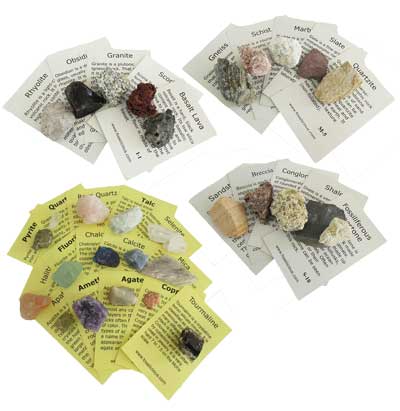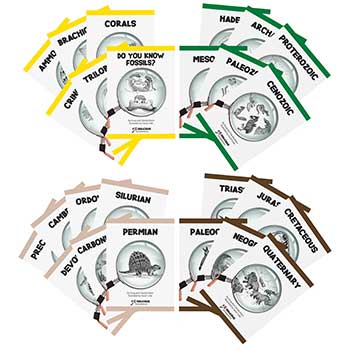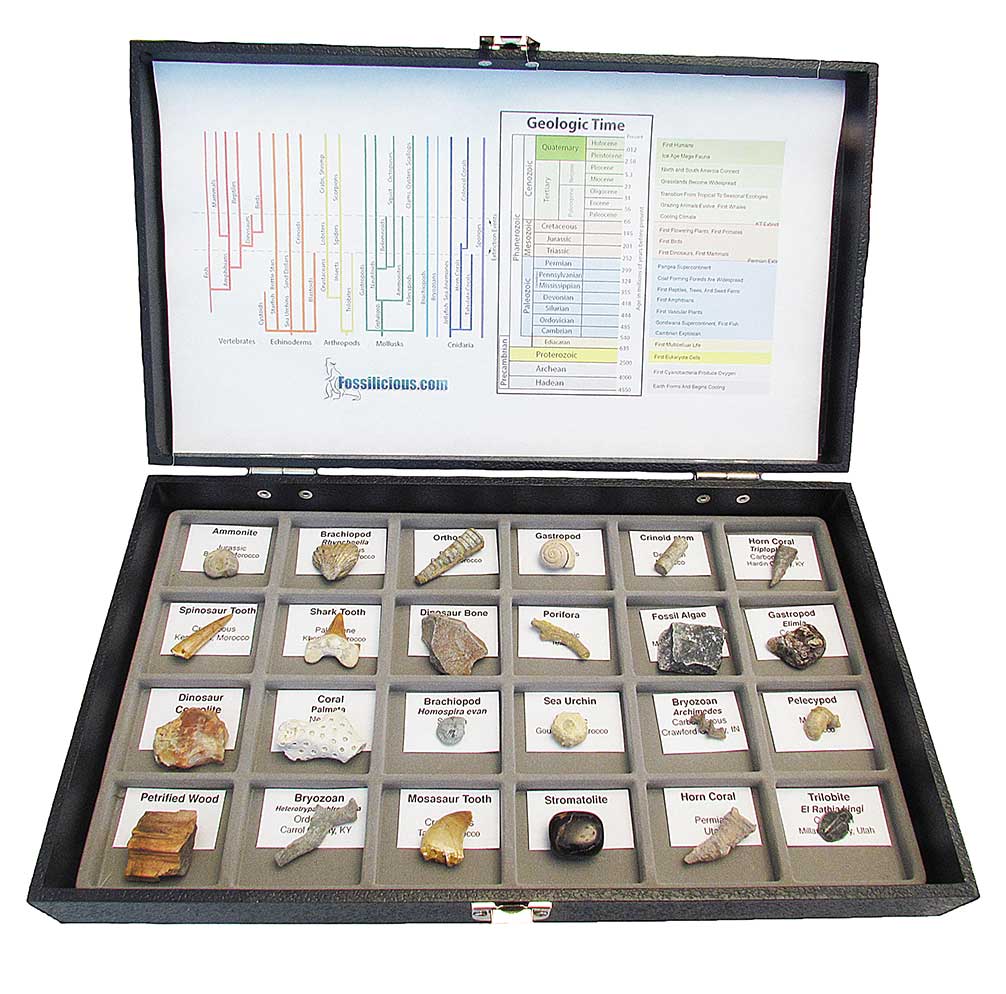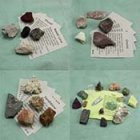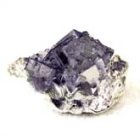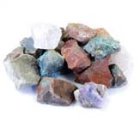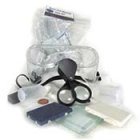Sign up for Lesson Plans, discounts & more!
Muscovite
Potassium Aluminum Silicate Hydroxide Fluoride
KAl2(AlSi3O10)(F,OH)2
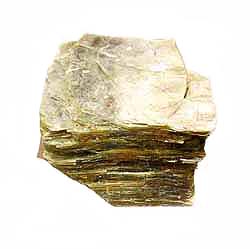
Muscovite is a member of the mica mineral group. It is more important as a rock-forming mineral than as a collectible specimen. However, many beautiful muscovite specimens are found in conjunction with other fine minerals such as quartz, tourmaline, topaz and beryl. One particular variation, the Star Muscovite, is valued for its unique 5-pointed cluster formation.
Muscovite is used as an insulator in heat and electrical applications. Its resistance to heat made it perfect as the “window” in ovens before synthetics were developed.
Muscovite sheets are durable. They maintain their shape even after a great deal of weathering and exposure. Because of this it was used as windows before glass production was chear and inexpensive. Muscovite is responsible for the shiny glimmering flecks found in many sands.
Mineral Properties
Chemical formula: KAl2(AlSi3O10)(F,OH)2 Potassium aluminum silicate hydroxide fluoride
Color(s): white, silver, yellow, green and brown
Streak: white
Luster: vitreous to pearly
Transparency: transparent to translucent
Crystal system: Monoclinic
Specific Gravity: 2.8 (average)
Hardness (Mohs): 2 – 2.5
Cleavage: perfect in one direction creating sheets or flakes
Fracture: uneven (but difficult to observe due to the cleavage)
Uses: insulation in electrical and heat applications
Location: India, Pakistan, Brazil and many places in the USA

INTERESTED IN MORE? IF SO, YOU MAY WANT TO CHECK OUT OUR OTHER SITES:
fossilicious.com - Our online fossil and mineral rock shop.
fossils-facts-and-finds.com - An educational site about fossils.
